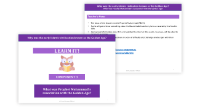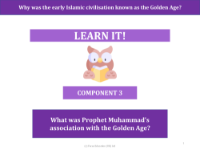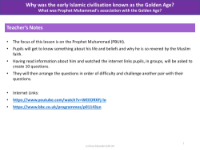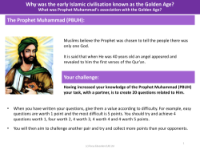The Prophet Muhammad (PBUH) - Info Pack - Islamic Civilisation - Year 6
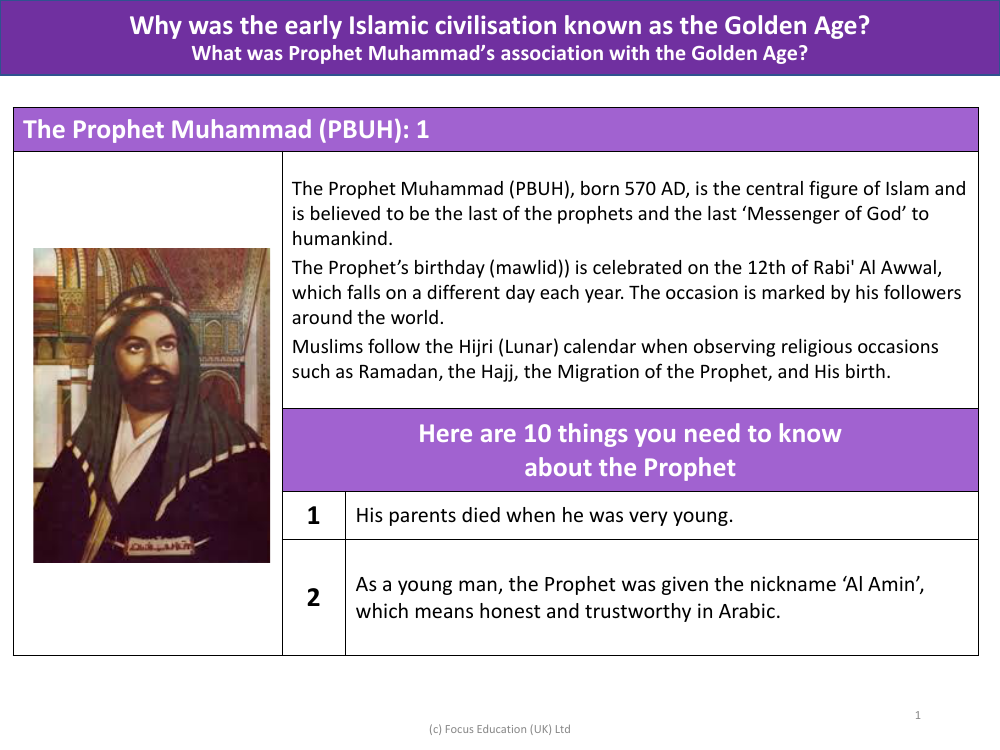
History Resource Description
The Prophet Muhammad (PBUH), revered as the final prophet in Islam, was born in the year 570 AD. He is celebrated as the last 'Messenger of God' sent to guide humanity. His life and teachings are central to the Islamic faith, and his followers commemorate his birthday on the 12th of Rabi' Al Awwal, according to the Hijri (Lunar) calendar. This date varies each year, reflecting the lunar cycle that also determines the timing of significant Islamic observances such as Ramadan and the Hajj. Among the key facts about the Prophet Muhammad (PBUH) are his early life hardships, including the death of his parents, and his reputation as 'Al Amin', an Arabic term for someone who is honest and trustworthy.
The Prophet Muhammad's (PBUH) life was marked by humility, forgiveness, and a commitment to equality and education. He is known for his domestic humility, his ability to see potential friends in all individuals, and his emphasis on equality across gender, race, and religion. His personal attributes included wearing an engraved ring for sealing letters, which symbolised the importance he placed on the name of 'Allah' above his own. The Prophet's name, Muhammad, is incredibly popular, ranking highly in the UK and worldwide. He also forewarned that some might misuse the name of Islam to justify wrongful acts. His legacy is intimately connected to the early Islamic civilisation, often referred to as the Golden Age, a period renowned for its advancements in various fields of knowledge and culture.
